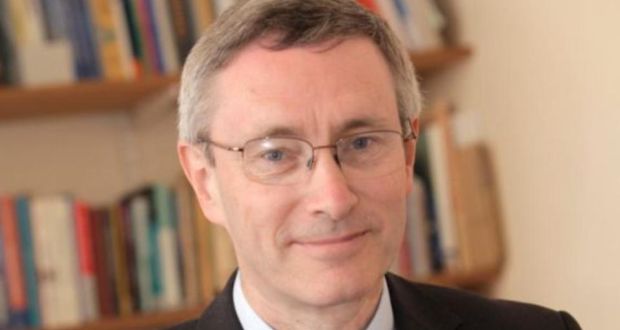Tom Healy calls for serious visions of an alternative Ireland to be developed.
As the south of Ireland heads into another General Election, the traditional lines are drawn alongside promises of more and better public services, lower taxes, greater fiscal coherence and a little bit of a giveback on some of the cuts in public sector pay. Meanwhile, wages and pensions stagnate in real terms.
Any vision or ‘big story’ that can inspire and motivate citizens to consider an alternative approach to economic and social policy is largely absent. Political differences boil down to personality considerations or relatively minor differences in budgetary targets or pathways. Talk of ‘left’ and ‘right’ is regarded as old hat and any notion that there are choices and different competing social models is dismissed as ‘unrealistic’ or ‘ideological’. Yet, ideology – like power – is everywhere.
The structure and make-up of the Irish economy reflects the complex political choices, class interests and social agreements over half a century. It could be summed up as the unique ‘Irish social contract’ constructed for a late developing capitalist economy highly integrated into the global market. Its core features include:
A relatively weak native industrial and services base with a matching heavy reliance on foreign direct investment
A high degree of wage and gross income inequality with a trend towards greater inequality over time
‘Heavy lifting’ by the State via tax and social welfare to mitigate income inequality (i.e. gross income is very unequal and net income after taxes and welfare is less so)
A low overall tax take, especially from employers, corporations and owners of capital.
The arrangement is kept in place through a broad social consensus driven by short-term populism and opportunities related to the electoral cycle. Hence, the competition for votes during economic upswings is around who will cut taxes the most or most fairly. Few question the wisdom, morality or sustainability of a low-tax and low-spending regime in itself.
There is an urgent need for progressive and left movements to review the direction of social policy. While we cannot forecast GDP, interest rates and world trade ten years ahead, it is important to chart possible future developments on different assumptions and scenarios.
One thing is certain – the past is no guide to the future; the unexpected occurs and the expected fails to materialise. Few in 1985 would have thought that a few years hence the USSR would collapse, the Berlin Wall would fall, apartheid would formally end, peace talks would yield results in Northern Ireland and new technologies would completely transform the way we live, work and communicate. There is no reason that the next 30 years will be any different in terms of the scale and unpredictability of change.
In the absence of a coherent, thought-out approach to policy, many on the left engage in battles over yesterday’s issues and terminology. Recourse to classic post-war social democracy represents a romantic and nostalgic quest for a social arrangement that worked for a time for very specific historical and cultural reasons. The ‘Nordic’ model of social protection and social consensus worked reasonably well and many of its core features still endure. However, the model (or models) is under huge pressure in a global market economy. A return to traditional soviet political economy is neither feasible nor desirable for those who wish to see democratic socialism as the best long-term goal. But, what is an optimal social outcome? What would democratic socialism mean on this island or islands in a fast-changing Europe? How can the challenge of environmental change be put at the centre of political debate?
More fundamentally, is the aim of trade unions and various political and civil society groups to reinvent capitalism – make it more humane, more just, more rational, more regulated in the public interest? Are there are ‘good’ varieties of capitalism such as the ‘Nordic’ model? Or, should the long-term aim be to replace and abolish capitalism? If so, with what exactly? And where has such an alternative model been tried and shown to deliver human progress, freedom, justice, peace and success? These are basic questions that need to be honestly faced up to and debated in Ireland.
Tom Healy is the director of the Nevin Economic Research Institute.





